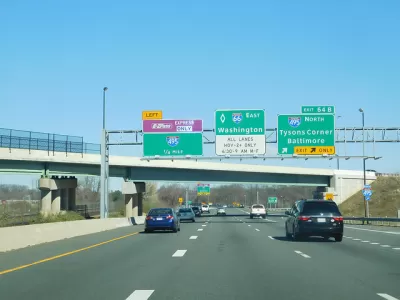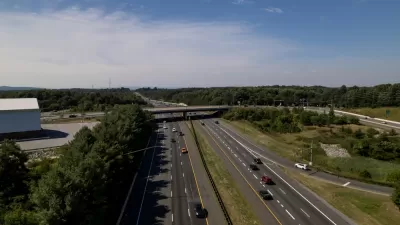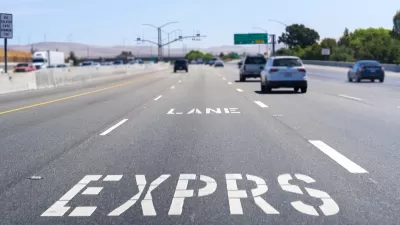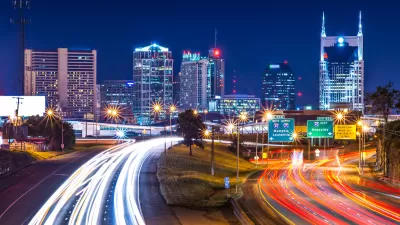Recently opened express lanes on a nine-mile stretch of Interstate 66 will now charge variable tolls based on traffic congestion.

A new set of express lanes on Virginia’s Interstate 66 with dynamic pricing are getting their first test after two weeks of toll-free driving, reports Neal Augenstein for WTOP. Drivers can see pricing, which can change every 30 minutes, about two miles before deciding whether to enter the express lanes. “The tolling system changes the price, in an attempt to ensure vehicles can maintain an average speed of 55 mph.”
“During the first Monday morning commute, the average cost was $6.10, for the entire western section, from the entrance over Route 29 in Gainesville to Route 28 in Centreville.” During the off-peak midday period, average tolls in both directions were $2.75. According to the article, the tolls will fluctuate more over time as the system ‘learns’ to become responsive to live traffic flows.
Express lanes are one example of congestion pricing, which adjusts the cost of driving by controlling traffic through a variety of mechanisms aimed at reducing congestion and encouraging off-peak travel.
FULL STORY: Is it worth it to you? What drivers are paying on new I-66 Express Lanes

Planetizen Federal Action Tracker
A weekly monitor of how Trump’s orders and actions are impacting planners and planning in America.

DARTSpace Platform Streamlines Dallas TOD Application Process
The Dallas transit agency hopes a shorter permitting timeline will boost transit-oriented development around rail stations.

Four Reasons Urban Planners Can’t Ignore AI
It’s no longer a question of whether AI will shape planning, but how. That how is up to us.

Amtrak’s Borealis Exceeds First Year Ridership Expectations
205,800 passengers have boarded the St. Paul to Chicago line, well above initial MDOT projections.

Study: 4% of Truckers Lack a Valid Commercial License
Over 56% of inspected trucks had other violations.

Chicago Judge Orders Thousands of Accessible Ped Signals
Only 3% of the city's crossing signals are currently accessible to blind pedestrians.
Urban Design for Planners 1: Software Tools
This six-course series explores essential urban design concepts using open source software and equips planners with the tools they need to participate fully in the urban design process.
Planning for Universal Design
Learn the tools for implementing Universal Design in planning regulations.
City of Mt Shasta
City of Camden Redevelopment Agency
City of Astoria
Transportation Research & Education Center (TREC) at Portland State University
US High Speed Rail Association
City of Camden Redevelopment Agency
Municipality of Princeton (NJ)





























